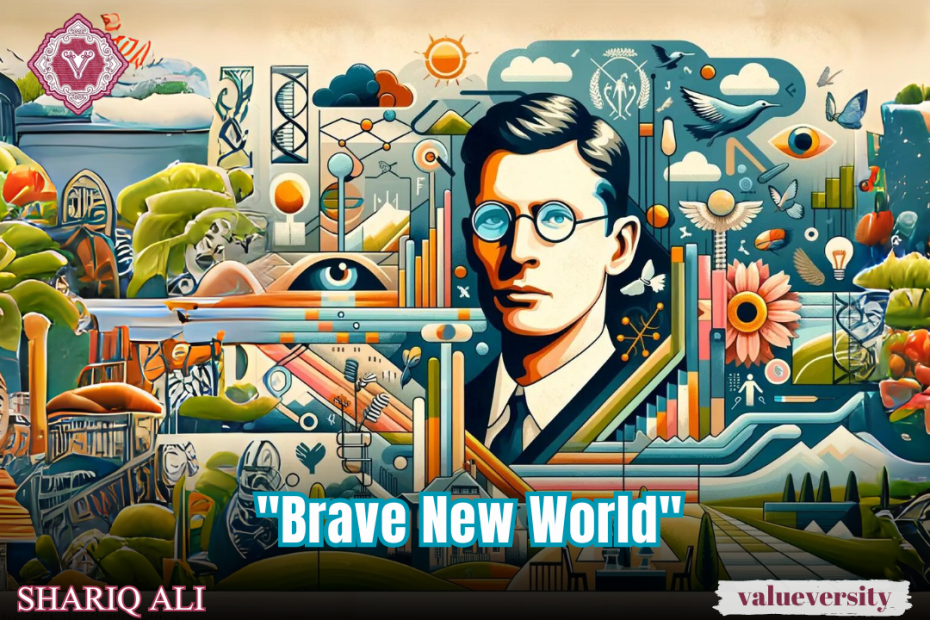Remarkable people and ideas
Aldous Huxley
& His novel
“Brave New world”
Aldous Huxley was an English writer and philosopher, born on July 26, 1894, in Godalming, Surrey, England. He came from a family of renowned intellectuals and writers. Huxley was known for his keen insights into the human condition, social criticism, and his exploration of the potential dangers of scientific advancements. He wrote numerous novels, essays, and plays, but his most famous work is undoubtedly the dystopian novel “Brave New World.”
Summary of “Brave New World”:
“Brave New World” is a dystopian novel written by Aldous Huxley and published in 1932. The story is set in a future world where technological and scientific advancements have brought about a highly structured and controlled society. The novel explores the dark consequences of a world where individuality, emotions, and personal freedom have been sacrificed in favor of stability, uniformity, and the pursuit of pleasure.
In this world, humans are genetically engineered and divided into different social classes: Alphas, Betas, Gammas, Deltas, and Epsilons. Each class is designed to perform specific roles within society. The government, known as the World State, exerts complete control over its citizens from birth, conditioning them through hypnopaedia (sleep-teaching) and the use of mind-altering drugs.
The novel follows several characters, including Bernard Marx, an Alpha who feels alienated and dissatisfied with the rigid social structure, and John the Savage, a man raised outside the controlled society who represents the last remnants of individuality and human emotions. Through these characters, Huxley explores the themes of conformity, the loss of personal identity, the dehumanization of individuals, and the consequences of sacrificing freedom for stability.
“Brave New World” presents a stark contrast between a superficially idealistic society that has eliminated suffering and a world where true human experiences, emotions, and relationships have been eroded. Huxley’s novel serves as a cautionary tale, warning against the dangers of sacrificing individuality and authentic human connection in the pursuit of a utopian vision.
Overall, “Brave New World” provides a thought-provoking critique of the potential consequences of a society driven by technological advancements, excessive control, and the suppression of individuality, urging readers to question the price we might pay for a seemingly perfect world.
